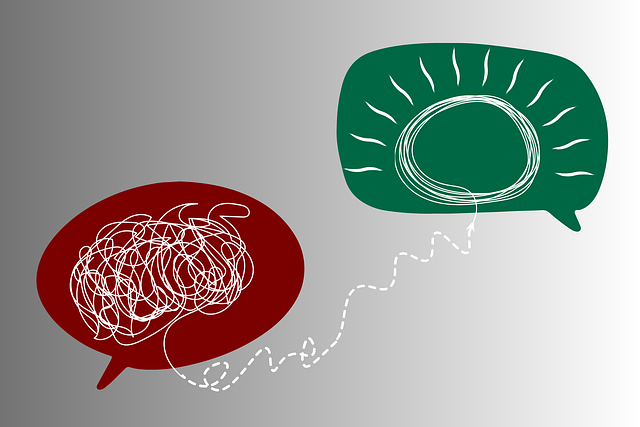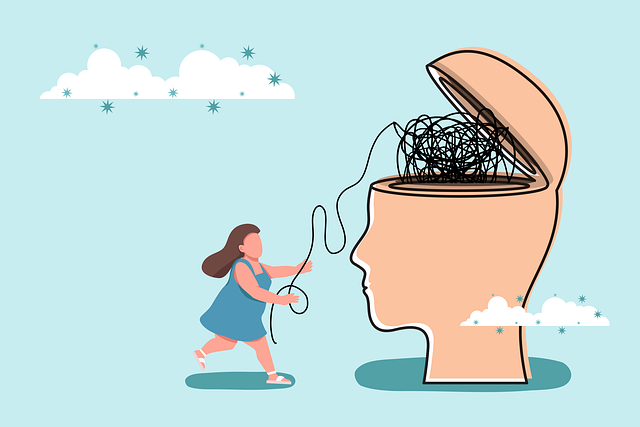Louisville Codependency Therapy integrates mindfulness meditation as a present-moment awareness practice to enhance emotional intelligence and navigate emotional landscapes with equanimity. Starting a practice involves dedicating 5-10 minutes daily in a quiet space, focusing on breath, and gently returning attention to thoughts. Regularity, guided support from therapists, and tracking progress are key. Mindfulness meditation, combined with other techniques like breathing exercises and Social Skills Training, strengthens concentration, fosters personal growth, and builds healthier relationships, aiding codependency recovery.
“Unwind your mind and embark on a transformative journey with mindfulness meditation, a core practice in Louisville Codependency Therapy. This ancient technique offers a peaceful sanctuary from the hustle and bustle of daily life, fostering self-awareness and emotional balance. In this article, we’ll guide you through the fundamentals, providing practical tips to initiate and sustain your mindfulness meditation practice. Additionally, we’ll explore strategies to overcome challenges, specifically tailored for those navigating codependency recovery.”
- Understanding Mindfulness Meditation: A Foundation for Louisville Codependency Therapy
- Practical Tips for Starting and Maintaining a Mindfulness Meditation Practice
- Overcoming Challenges in Mindfulness Meditation for Codependency Recovery
Understanding Mindfulness Meditation: A Foundation for Louisville Codependency Therapy

Mindfulness meditation is a practice that has gained significant traction in modern therapeutic approaches, including Louisville Codependency Therapy. At its core, mindfulness involves cultivating present-moment awareness while gently non-judgmentally observing one’s thoughts and feelings. This ancient technique has been shown to enhance emotional intelligence—a key component of effective therapy—by promoting deeper self-awareness and understanding.
In the context of Louisville Codependency Therapy, mindfulness serves as a powerful foundation for cultivating healthy relationships and managing codependent behaviors. By integrating cultural sensitivity in mental healthcare practice and trauma support services, therapists can guide individuals to navigate their emotional landscapes with greater equanimity. This approach not only facilitates personal growth but also empowers individuals to build stronger, more fulfilling connections with others.
Practical Tips for Starting and Maintaining a Mindfulness Meditation Practice

Starting a mindfulness meditation practice can seem daunting, but with consistent effort and practical tips, it becomes an accessible and rewarding habit. Begin by setting aside just 5–10 minutes each day for your practice. Choose a quiet, comfortable space where you won’t be disturbed, and get into a position that supports relaxation—sitting cross-legged on the floor, or using a cushion on a chair works well. Focus on your breath as an anchor; notice the sensation of air flowing in and out without judgment. When thoughts arise, gently return your focus to your breath.
Regularity is key to maintaining this practice. Consider setting a daily reminder or incorporating it into your morning or evening routine. Track your progress in a journal or using apps designed for mindfulness meditation. Remember, Louisville Codependency Therapy can offer valuable insights and support as you cultivate mental health awareness through mindfulness meditation, helping you build resilience and even boost confidence along the way.
Overcoming Challenges in Mindfulness Meditation for Codependency Recovery

Mindfulness meditation can be a powerful tool for those recovering from codependency, but it’s not always an easy path. One of the main challenges individuals face is maintaining focus during practice. This is especially true if they’re new to mindfulness or dealing with underlying issues like anxiety or depression. It’s normal to have wandering thoughts and get distracted; the key is to be patient and non-judgmental towards oneself.
Louisville Codependency Therapy offers guidance in navigating these challenges. Techniques such as mindful breathing exercises, body scans, and guided meditations can help strengthen concentration. Additionally, integrating mindfulness into daily routines through activities like walking or eating mindfully supports sustained practice. Engaging in Social Skills Training and Crisis Intervention Guidance, alongside regular meditation, can further enhance recovery by improving communication, building healthier relationships, and providing tools to manage intense emotions, all of which contribute to overcoming codependency.
Mindfulness meditation, when integrated into Louisville Codependency Therapy, offers a powerful tool for personal growth and recovery. By understanding its fundamentals, employing practical tips, and overcoming challenges, individuals can harness the benefits of this ancient practice to cultivate present-moment awareness and foster healthier relationships. Incorporating mindfulness into daily routines enables codependent individuals to develop self-compassion, improve emotional regulation, and build resilience—all essential components for lasting recovery and enhanced well-being.














